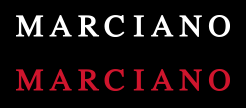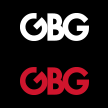Audit Committee
<< Back
| Quicklinks |
- I. Audit Committee Purpose
- II. Audit Committee Composition and Meetings
- III. Audit Committee Responsibilities and Duties
Restated Charter of the Audit Committee of the Board of Directors
as adopted by the Board of Directors
on February 26, 2004
The Audit Committee (the "Committee") is appointed by the Board of Directors (the "Board") of Guess?, Inc. (the "Company") to oversee the accounting and financial reporting processes of the Company and audits of the financial statements of the Company and to prepare the annual report of Audit Committee required by applicable Securities and Exchange Commission ("SEC") disclosure rules, which report will be included in the Company's annual proxy statement. Among the matters the Committee will oversee are (a) the integrity of the Company's financial statements, (b) the Company's compliance with legal and regulatory requirements, (c) the independent auditor's qualifications and independence, and (d) the performance of the Company's internal audit function and independent auditor.
The Committee has the authority to conduct any investigation appropriate to fulfilling its responsibilities, and it has direct access to the independent auditors as well as anyone in the Company. The Committee has the power, in its sole discretion, to obtain advice and assistance from, and to retain at the Company's expense, such independent or outside legal counsel, accounting or other advisors and experts as it determines necessary or appropriate to carry out its duties, and in connection therewith to receive appropriate funding, determined by it, from the Company. The Committee also has the power to determine the level and cost of ordinary administrative expenses necessary or appropriate in carrying out its duties, with such costs to be borne by the Company.
The independent auditors are ultimately accountable to the Committee. The Committee shall have the ultimate authority and responsibility to select, evaluate and, where appropriate, replace the independent auditors (or to nominate the independent auditors to be proposed for stockholder approval in any proxy statement).
II. Audit Committee Composition and Meetings
Composition
Audit Committee members shall meet the independence and knowledge requirements of applicable law and the rules of the SEC and the New York Stock Exchange (the "Exchange") in effect from time to time (subject to any exceptions allowed by such rules and any waivers granted by such authorities). No Audit Committee member shall simultaneously serve on the audit committees of more than two other public companies.
The Audit Committee shall be comprised of three or more directors as determined by the Board, each of whom shall have no relationship to the Company that may interfere with the exercise of his or her independence from management and the Company and each of whom shall meet the other independence requirements and restrictions with respect to audit committee members as set forth in the corporate governance standards of the Exchange. Each member of the Committee shall be financially literate, as such qualification is interpreted by the company's Board in its business judgment, or must become financially literate within a reasonable period of time after his or her appointment to the Committee. At least one member of the Committee must have accounting or related financial management expertise, as the Board interprets such qualification in its business judgment.
If practicable, at least one member of the Committee must qualify as an "audit committee financial expert" (as defined by the SEC). The Company will disclose in its annual report required by Section 13(a) of the Securities Exchange Act of 1934, as amended (the "1934 Act"), whether or not it has at least one member who is an audit committee financial expert. In any event, the Committee must include at least one member who the Board determines has accounting or related financial management experience.
Audit Committee members shall be appointed by and serve at the discretion of the Board, following the recommendations of the Company's Nominating and Governance Committee. The Board may designate a Chairperson of the Committee (a "Chair"). If a Chair is not designated or if the designated Chair is not present at a meeting, the members of the Committee may designate a Chair by majority vote of the Committee membership.
Meetings
The Committee shall meet at least four times annually, or more frequently as it shall determine is necessary to carry out its duties and responsibilities. The Committee may ask any officer or employee of the Company or the Company's outside counsel or independent auditor to attend a meeting of the Committee or to meet with any member of, or consultant to, the Committee and to provide pertinent information as necessary. In consultation with management, other Committee members and the independent auditors, the Chair shall prepare and/or approve an agenda in advance of each meeting. The Committee shall maintain minutes of meetings, regularly report to the Board regarding the Committee's activities, and its conclusions with respect to the independent auditor, and make appropriate recommendations to the Board. Unless the Committee or the Board adopts other procedures, the provisions of the Company's Bylaws applicable to meetings of the Board will govern meetings of the Committee.
The Committee shall meet privately in separate executive sessions periodically and at least annually with management, the director of the internal auditing department (or the firm selected to perform internal auditing, if such function is outsourced), the independent auditors, and as a committee to discuss any matters that the Committee or any of such persons or groups believes should be discussed. In addition, the Committee, or its Chair, shall communicate with management and the independent auditors quarterly to review the Company's financial statements and significant findings prior to the filing of such statements with the SEC.
III. Audit Committee Responsibilities and Duties
Review Procedures
Review and reassess the adequacy of this charter (the "Charter") at least annually. Submit the Charter to the Board for approval and have the Charter published as required by applicable law.
Review and discuss with Company management and the independent auditors:
(i) the Company's yearly financial results prior to the release of year-end earnings and the Company's annual audited consolidated financial statements (including the Company's disclosures under "Management's Discussion and Analysis of Financial Condition and Results of Operations") and the related report of the independent auditors prior to filing or distribution of such statements,
(ii) the Company's quarterly financial results prior to the release of quarterly earnings (including the type and presentation of information to be included in the earnings press releases) and the Company's quarterly financial statements (including the Company's disclosure under "Management's Discussion and Analysis of Financial Condition and Results of Operations") and the related report of the independent auditors prior to filing or distribution of such statements, and
(iii) the Company's financial information and earnings guidance provided to analysts and rating agencies.
Such review should include discussion with management and the independent auditors of:
(a) significant issues regarding, and any material changes to, accounting and auditing principles and financial statement presentations, practices and judgments,
(b) the adequacy of internal controls that could significantly affect the Company's financial statements, and any special audit steps adopted in light of material control deficiencies,
(c) in the case of year-end financial results, the results of the audit, and
(d) any items required to be communicated by the independent auditors in accordance with Statement of Auditing Standards (SAS) No. 61, as it may be amended or supplemented.
The Chair may represent the entire Committee for purposes of this review.
Review an analysis prepared by management and the independent auditors of significant financial reporting issues and judgments made in connection with the preparation of the Company's financial statements, including an analysis of the effect of alternative GAAP methods on the Company's financial statements.
In consultation with management, the independent auditors and the internal auditors, consider the integrity of the Company's financial reporting processes and internal control policies and procedures.
Meet periodically with management to discuss significant financial risk exposures and the steps management has taken to monitor, control, and report such exposures. Review significant findings prepared by the independent auditors and those charged with the internal auditing function together with management's responses, including the status of previous recommendations.
Review with management and the independent auditor the effect of regulations and accounting initiatives as well as off-balance sheet structures on the Company's financial statements.
Obtain and review timely reports from the independent auditor regarding:
(a) all critical accounting policies and practices to be used by the Company,
(b) all alternative treatments of financial information within GAAP that have been discussed with management, ramifications of the use of such alternative disclosures and treatments, and the treatment preferred by the independent auditor, and
(c) all other material written communications between the independent auditor and management, including any management letter or schedule of unadjusted differences.
Such reports may be oral or in writing, but must be provided to the Committee before any auditor's report is filed with the SEC.
Independent Auditors
Be solely and directly responsible for the appointment, compensation, retention, evaluation, and oversight of the work of the independent auditor (including resolution of disagreements between management and the independent auditor regarding financial reporting) for the purpose of preparing or issuing an audit report or performing other audit, review or attest services for the Company and, where appropriate, the termination and replacement of such firm. Such independent auditor shall report directly to and be ultimately accountable to the Committee. The Committee has the ultimate authority to approve all audit engagement fees and terms, with the costs of all engagements to be borne by the Company.
Consider whether there should be regular rotation of the independent auditor. Review and evaluate the lead partner of the independent auditor. Ensure that the lead audit partner having primary responsibility for the audit and the reviewing audit partner of the independent auditor are rotated at least every five years and that other audit partners (as defined by the SEC) are rotated at least every seven years.
Review changes to the Company's auditing and accounting policies and practices as suggested by the independent auditors, internal auditors or management.
Review and approve the independent auditors' engagement letter and approve the fees and other significant compensation to be paid to the independent auditors.
Pre-approve all audit services and all non-audit services permitted to be performed by the independent auditor. Such pre-approval may be given as part of the Committee's approval of the scope of the engagement of the independent auditor or on an engagement-by-engagement basis or pursuant to pre-established policies. In addition, the authority to pre-approve non-audit services may be delegated by the Committee to one or more of its members, but such member's or members' non-audit service approval decisions must be reported to the full Committee at the next regularly scheduled meeting. The Company shall disclose in its Annual Reports on Form 10-K and its Quarterly Reports on Form 10-Q any approval of non-audit services during the period covered by the applicable report.
At least annually, obtain and review a report from the independent auditor describing:
(a) the independent auditor's internal quality-control procedures,
(b) any material issues raised by the most recent internal quality-control review, or peer review, of the independent auditor, or by any inquiry or investigation by governmental or professional authorities, within the preceding five years, respecting one or more independent audits carried out by the independent auditor, and any steps taken to deal with any such issues, and
(c) all relationships between the independent auditor and the Company (to assess the independent auditor's independence).
Set clear hiring policies for employees and former employees of the independent auditor.
Review the independent auditors' audit plan prior to the audit. Discuss scope, staffing, locations, reliance upon management, and internal audit and general audit approach. Monitor such plan's progress and results during the year.
Consider the independent auditor's judgments about the quality and appropriateness of the Company's accounting principles as applied in its financial reporting
Obtain from the independent auditors any information pursuant to Section 10A of the 1934 Act and take any and all action required by Section 10A to be taken by the Committee, and cause the Board to take, any and all action required by Section 10A to be taken by the Board, in response to any such information.
Review with the independent auditors any problems or difficulties the auditors may have encountered in the course of their audit work, and any management letter provided by the independent auditors and the Company's response to that letter. Such review should include:
(a) Any difficulties encountered in the course of the audit work, including any restrictions on the scope of activities or access to required information, and
(b) Any changes required in the planned scope of the independent audit.
Discuss with the independent auditor any accounting adjustments that were noted or proposed by the independent auditor but were passed on. Review any communications between the audit team and the audit firm's national office respecting auditing or accounting issues presented by the engagement and any "management" or "internal control" letter issued, or proposed to be issued, by the audit firm to the Company.
Internal Audit Function and Legal Compliance
Review the budget, plan, changes in plan, activities, responsibilities, staffing, organizational structure, and qualifications of the internal auditor, as needed.
Review the appointment, performance, and replacement of the senior internal audit executive, manager or firm.
Review significant reports prepared by the internal auditor together with management's response and follow-up to these reports.
On at least an annual basis, review with the Company's counsel any legal matters that could have a significant impact on the Company's financial statements, the Company's compliance with applicable laws and regulations, and any inquiries received from regulators or governmental agencies.
Other Audit Committee Responsibilities
Annually prepare a report as required by, and stating the information specified by, the proxy rules under the 1934 Act, which report shall be included in the Company's annual meeting proxy statement (or, if applicable, information statement in lieu thereof).
Recommend to the Board, based on the Committee's review and discussions with management and the independent auditors, whether or not the audited financial statements should be included in the Company's Annual Report on Form 10-K for the last fiscal year for filing with the SEC.
Confirm that the Company's interim financial statements to be included in the Company's Quarterly Report on Form 10-Q have been reviewed by the Company's independent auditors.
Perform any other activities consistent with the Charter, the Company's Bylaws, and governing law, as the Committee or the Board deems necessary or appropriate.
Maintain minutes of meetings and periodically report to the Board on significant results of the foregoing activities.
Establish, review, and update periodically a Code of Conduct and ensure that management has established a system to enforce this Code.
Establish procedures for the receipt, retention and treatment of complaints received by the Company from Company employees regarding accounting, internal accounting controls, or auditing matters, and the confidential, anonymous submission by Company employees of concerns regarding questionable accounting or auditing matters.
Annually perform self-assessment of audit committee performance.
Review financial and accounting personnel succession planning within the Company.
Review at least annually a summary of directors' and officers' related party transactions and potential conflicts of interest and the Company's policies relating to the avoidance of conflicts of interest. Review past and proposed transactions between the Company, on the one hand, and any of its directors or executive officers, on the other hand. Review policies and procedures as well as audit results associated with directors' and officers' expense accounts and perquisites, including the use of corporate assets. Consider the results of any review of any of the foregoing by the Company's independent auditors.
Obtain reports from management, the Company's senior internal auditor, the independent auditors and internal and external legal counsel that the Company's subsidiaries and any foreign affiliated entities are in conformity with applicable accounting and legal requirements.
Report regularly to the Board with respect to the quality or integrity of the Company's financial statements, the Company's compliance with applicable legal or regulatory requirements, the performance and independence of the Company's independent auditors, and the performance of the internal audit function.
Confirm that the Company has prepared and filed, on an annual basis after the Board appoints the Committee and at any subsequent time when the composition of the Committee changes, the written certification required by the rules of the Exchange.
* * * * *
- Member
- Chair
- Financial Expert
- Independent Director






